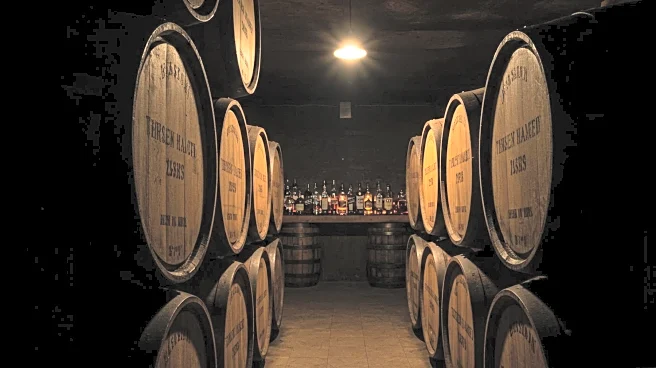What's Happening?
Canadian bars are experiencing a shortage of Kentucky Bourbon five months after Canada imposed a ban on U.S. alcoholic products. This action was a retaliatory measure against the Trump administration's imposition of 25% tariffs on Canadian goods. Bar owners, like Johnny Rafferty of Rose and Crown in Toronto, had initially stocked up on Kentucky Bourbon to weather the trade conflict. However, supplies are dwindling, with Rafferty down to his last few bottles. The scarcity has led some establishments to increase prices for the remaining stock, treating it as a premium product. While Alberta has lifted the ban to facilitate trade negotiations, other provinces continue to enforce it, maintaining the pressure on local bars and consumers.
Why It's Important?
The ongoing ban highlights the broader implications of international trade disputes on local businesses and consumers. The shortage of Kentucky Bourbon in Canadian bars underscores the tangible impact of tariffs and retaliatory measures on cross-border commerce. For U.S. distilleries, the ban represents a significant loss of market access, potentially affecting their sales and profitability. Canadian consumers and bar owners face higher costs and limited availability of popular American spirits, which could influence consumer behavior and business operations. The situation exemplifies how trade policies can ripple through economies, affecting industries and stakeholders on both sides of the border.
What's Next?
The future of the ban and its impact on the availability of U.S. spirits in Canada will depend on ongoing trade negotiations between the two countries. If the tariffs are lifted, it could lead to a resurgence in the availability of Kentucky Bourbon in Canadian markets. However, if the ban persists, Canadian bars may need to seek alternative suppliers or adjust their offerings to accommodate the shortage. The situation may also prompt further discussions on trade policies and their effects on international relations and local economies.









